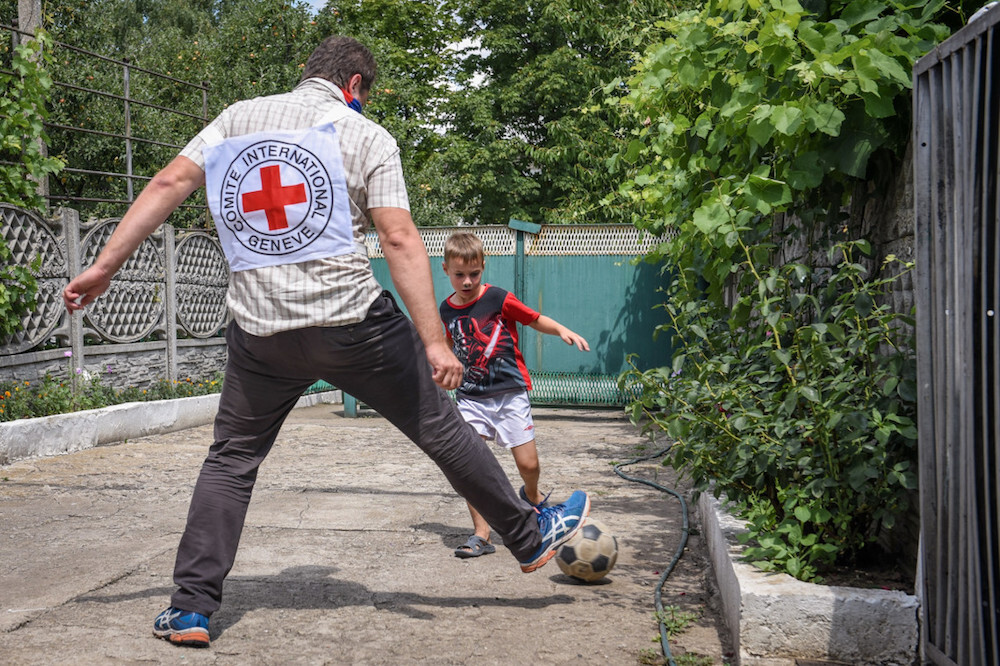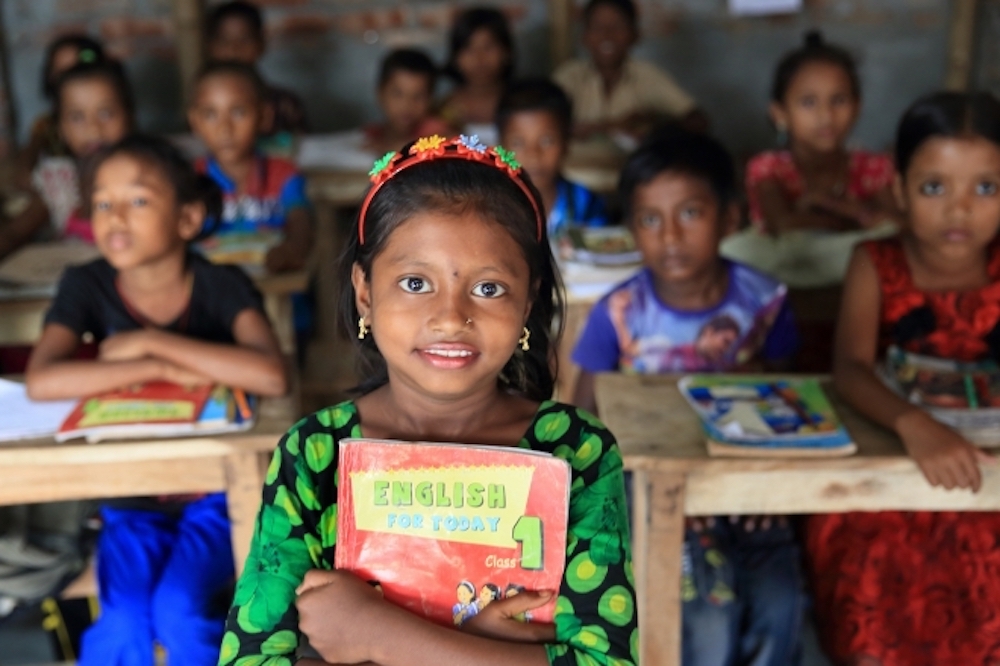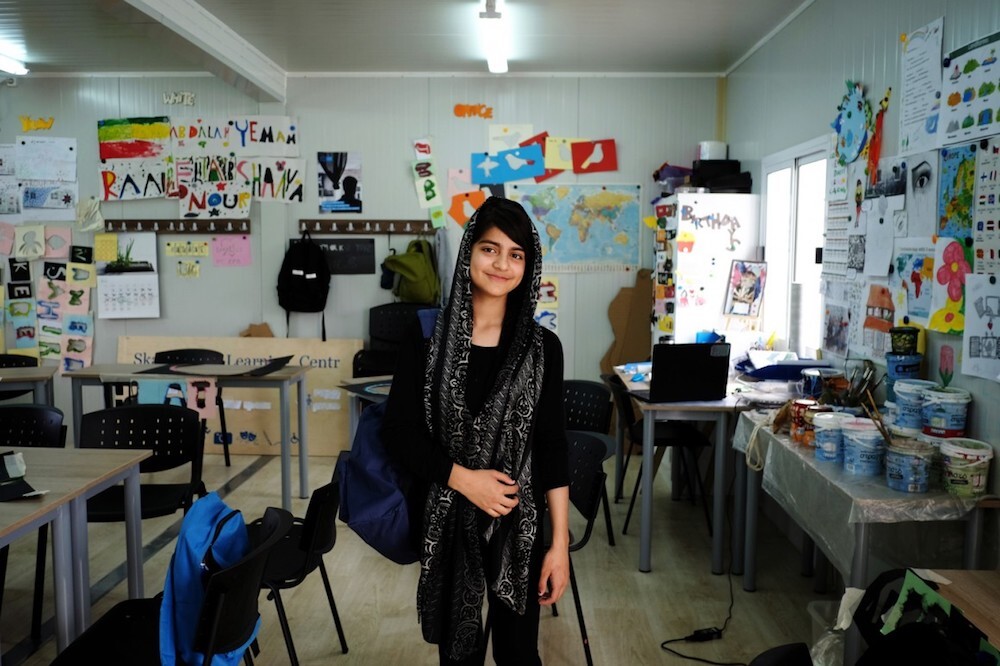
Five things you need to know this week about global education

Children in conflicts, Education in emergencies
Our roundup brings good news about education in crisis countries, a boost for millions of Indian students and hope for slum children in Bangladesh.
Emergencies global hub is launched
Ten key institutions have joined forces to help deliver education to crisis-affected and displaced children and youth around the world.
The Geneva Global Hub for Education in Emergencies – launched on Sunday to mark the International Day of Education – follows a pledge to work together made by the organisations at the 2019 Global Refugee Forum.
The hub will be based in the Swiss city and include representatives from Education Cannot Wait, the Global Education Cluster, UNICEF, UNESCO, UNHCR, the International Committee of the Red Cross (ICRC), the Inter-Agency Network for Education in Emergencies (INEE), the Swiss Federal Department of Foreign Affairs, the University of Geneva and the Graduate Institute.
“If a child is not going to school it lacks an important safety net" says @PetraHeusser of @EiEGenevaHub, which will bring together actors from across the International Geneva community to improve education for crisis-affected children via @genevasolutions https://t.co/C8KzsmuceS
— Geneva Global Hub for Education in Emergencies (@EiEGenevaHub) January 26, 2021
The hub will be a catalyst for partners to come together to increase their prevention and response to education needs in emergencies.
Of the world’s 257 million primary and secondary school-age children out of school before the pandemic, 127 million live in countries affected by emergencies.
“Even prior to the pandemic, children’s learning was in crisis,” said Petra Heusser, coordinator of the hub. “There are so many children who do not go to school in crisis-affected countries and for them, the pandemic has only increased inequities and risks.”
Help for refugee learning programmes
With newly approved funding from #ECW, @UNRWA will reach children in grades 1-9 and ensure that +200 teachers deliver enhanced/tailored learning support to the most vulnerable & hard-to-reach students – especially children with disabilities – in #Lebanon. https://t.co/X6hPbSOAH8 pic.twitter.com/YlzMRWOfC7
— Education Cannot Wait (@EduCannotWait) January 26, 2021
Education Cannot Wait – the fund for education in emergencies – has approved financial support for programmes in Sudan and Lebanon.
A $2 million allocation will back rapid education in emergencies interventions in eastern Sudan for children and youth fleeing violence in Ethiopia’s Tigray region. This will help to ensure continued access to quality pre-primary, primary and secondary education for at least 5,800 refugee children and youth in refugee settlements.
“These innocent girls and boys are the victims of conflict. Many have been separated from their families and have experienced violence, hunger and untold psychological trauma on the long and treacherous journey to the camps in eastern Sudan,” said ECW Director Yasmine Sherif.
Another $1.5 million in grant funding will go to the United Nations Relief and Works Agency for Palestine Refugees (UNRWA) in Lebanon. This will provide access to safe and inclusive learning for more than 32,000 Palestine refugee children and youth living in Lebanon. It will also provide personal protective equipment for staff and students to help control the spread of Covid-19.
Education aid for India and Bangladesh

The $6.5 million financing agreement will support poor children in Bangladesh to complete primary education (World Bank)
About 250 million students in 1.5 million schools and more than 10 million teachers in India will benefit from a $500 million agreement signed today by the Indian government and the World Bank.
The Strengthening Teaching-Learning and Results for States Program (STARS) will improve the quality and governance of school education in six Indian states – Himachal Pradesh, Kerala, Madhya Pradesh, Maharashtra, Odisha and Rajasthan.
About 39,000 slum children will also be able to complete their primary education thanks to a financing agreement between the government of Bangladesh and the World Bank. The $6.5 million commitment will also help vulnerable out-of-school local youth in Cox’s Bazar to complete courses in pre-vocational and enterprise development training.
This is additional funding for learning centres, known as Ananda Schools, where about 690,000 children have studied. At these schools, poor students are taught until they are ready to proceed to secondary school.
High schools to reopen in Greece

Greece is set to let secondary schools reopen for the first time in more than two months (UNICEF)
Greece will let high schools restart classes on February 1 for the first time in more than two months as it loosens some lockdown restrictions. Primary schools and kindergartens began to reopen in November.
Bulgaria will also allow secondary school students to attend classes from February 5 next month. Thailand will reopen most schools from next week after they were closed at the beginning of January.
Bahrain will move schools to remote learning for three weeks.
The lockdown in England is likely to last until March 8, when schools could start to reopen. UK Prime Minister Boris Johnson said it would not be possible to restart classes in February, as previously planned.
LEGO and Scratch unite on early skills
Are you curious to hear more about @scratch?
They are one of the creative innovators that we are highlighting together with @HundrEDorg and our partner in our Tech & Play initiative. Explore more leading innovators here: https://t.co/n1gTz64ljS pic.twitter.com/v5E08IrV9j— The LEGO Foundation (@LEGOfoundation) January 22, 2021
The LEGO Foundation and Scratch Foundation have announced a five-year $10 million partnership on learning through play and skills for young children in a technology-driven world.
Through the Tech & Play Initiative, they will aim to make learning through technology-assisted play more accessible to teachers and equip children with the skills they need. The Scratch programming platform enables children to create digital stories, games and animations, and share them with an online community by “snapping” together graphical blocks of code.
The partnership’s initial focus will be on Mexico, South Africa, Ukraine, Brazil, Colombia, Ghana, Kenya and Rwanda.
“Children learn most effectively when they are playfully engaged in constructing meaningful projects,” said LEGO Group owner and LEGO Foundation board member Kjeld Kirk Kristiansen. “Scratch shows how computer programming is not only a very creative process but also an important skills-building activity.”
More news

